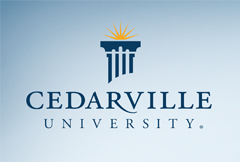Keywords
Assisted reproductive technologies, third-party gametes, Christians
Abstract
As more assisted reproductive technologies (ART) become available, Christians will find themselves grappling with thorny questions about which ones are ethical and acceptable for use by Christ-followers. Many ART technologies have already been widely accepted by the community of faith, while the appropriateness of others is controversial, due to religious convictions regarding marriage and the sanctity of life. One of the most controversial types of ART (especially among Christians) is third-party gamete donation in the context of in vitro fertilization (IVF). Infertile couples consider third-party gamete donation when one or both partners are unable to produce viable gametes. In such an instance, a couple seeks to conceive a child using either sperm or ova from another individual. This paper will reject as unethical such a practice, for three reasons: 1) it violates the sanctity of marriage, 2) it may lead to exploitation of human beings, and 3) if fails to give due consideration to the rights of the resulting children.
DOI
10.15385/jce.2010.10.1.5
Recommended Citation
Valji, Emily
(2010)
"Third-Party Gametes and the Christian,"
CedarEthics: A Journal of Critical Thinking in Bioethics: Vol. 10:
No.
1, Article 5.
DOI: 10.15385/jce.2010.10.1.5
Available at:
https://digitalcommons.cedarville.edu/cedarethics/vol10/iss1/5
Creative Commons License

This work is licensed under a Creative Commons Attribution-Noncommercial-No Derivative Works 3.0 License.
Disclaimer
The CedarCommons repository provides a publication platform for fully open access journals, which means that all articles are available on the Internet to all users immediately upon publication. However, the opinions and sentiments expressed by the authors of articles published in our journals do not necessarily indicate the endorsement or reflect the views of Digital Services, the Centennial Library, or Cedarville University and its employees. The authors are solely responsible for the content of their work. Please address questions to the Digital Services staff.

